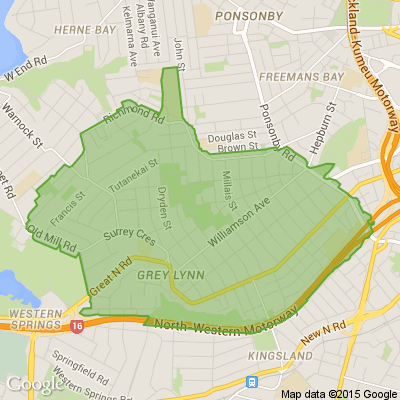Free help for flood-affected businesses and neighbours...
We’re thinking of our neighbours and small businesses affected by the flooding across Auckland. While it’s heartbreaking to see our communities struggle through another significant, disruptive event, we’re also seeing our members band together to support each other.
Here’s a few ways Neighbourly can help right now…
IF YOU'RE A SMALL BUSINESS:
- we're giving small businesses affected by the flooding a free 3-month Premium Business Listing. Simply follow this link and follow the steps to set up your profile.
IF YOU'RE NEEDING SUPPORT:
- share a few words on Neighbourly to let your neighbours know how they can help you or someone you know
- get in touch with the Neighbourly team if we can help spread the word about anything you're doing in the community - or if you're involved with a community group that's needing some support
IF YOU CAN HELP YOUR COMMUNITY:
- share a few words on Neighbourly to let your community know how you can support them. Remember no offer is too small - even just offering to be the friendly voice of support on the other end of the phone can help a neighbour feeling overwhelmed or isolated
- consider sharing resources or information you have found helpful at this time on Neighbourly
- check on your neighbours but do not put yourself in danger doing so. If you feel there is any risk consider sending them a message through your Neighbourly inbox
• For live news updates click here
• For updates on Auckland Emergency Management including useful resources click here

Poll: Should all neighbours have to contribute to improvements?
An Auckland court has ruled a woman doesn’t have to contribute towards the cost of fixing a driveway she shares with 10 neighbours.
When thinking about fences, driveways or tree felling, for example, do you think all neighbours should have to pay if the improvements directly benefit them?

-
82.5% Yes
-
14.7% No
-
2.8% Other - I'll share below
The Influence of the Whānau - Day 9
In a small Māori pā (village) nestled beside a flowing river, a young boy named Rangi lived with his whānau. Rangi was curious and adventurous, always exploring the ngahere (forest) and listening to the stories of his kaumātua (elders). The kaumātua would often remind him, “He waka eke noa”—we are all in this together, and our actions affect the collective.
Rangi's best friend, Manu, was a clever boy but sometimes made poor choices. Manu had recently begun spending time with a group of older boys from another pā who were known for their reckless behavior. They would waste kai (food), leave rubbish in the ngahere, and even disturb the sacred awa (river) by throwing stones at eels.
One day, Manu invited Rangi to join the group, saying, “Come on, Rangi! They’re fun, and they won’t hurt anyone. We’re just having a good time!” Unsure, Rangi agreed, feeling pressure to fit in.
The group’s leader, Matiu, proposed a game: they would sneak into the kaumātua's kumara patch at night and take some for a "feast." Rangi hesitated. He remembered the kaumātua saying how much work went into growing the kumara, with karakia (prayers) and care for the soil. But he stayed silent, feeling outnumbered.
That night, the group raided the garden. As they laughed and ate the stolen kumara by the fire, Rangi felt uneasy. He realized that this was not who he wanted to be. When he saw Manu’s joy in impressing Matiu, Rangi felt torn but remained quiet.
The next morning, the kaumātua discovered the missing kumara and the trampled garden. They called the entire pā together, expressing sadness, not anger. “Our ancestors teach us that the whenua (land) provides for all of us, but only if we treat it with respect,” said one elder. “When we harm the whenua, we harm ourselves.”
Rangi’s heart sank. That evening, he confessed to the kaumātua and his whānau, explaining everything. To his surprise, they did not scold him harshly. Instead, they said, “He tangata tītoki, he tangata rākau—a person is like a tree; they grow straight when supported by others. You must choose companions who uphold the values of your whānau and whenua.”
Rangi decided to distance himself from Manu’s new group and instead spent time with those who respected the land and upheld the teachings of their ancestors. Over time, he encouraged Manu to rejoin him, and together they worked to rebuild the kumara patch, learning from the kaumātua.
---
Moral
This story highlights the importance of right company and like-mindedness. It shows that no one is inherently bad, but the influence of others and the situations we choose can lead us astray. Surrounding ourselves with those who uphold values like respect, care, and collective well-being ensures a life of balance and harmony.
Ka mua, ka muri — by learning from the past, we can walk into the future.
Poll: When should the tree go up? 🎄
From what we've heard, some Christmas trees are already being assembled and decorated.
What are your thoughts on the best time to get your Christmas tree up?

-
4.8% Second half of November
-
43.7% 1st December
-
17.6% A week before Christmas
-
32.8% Whenever you wish
-
1.1% Other - I'll share below





 Loading…
Loading…











